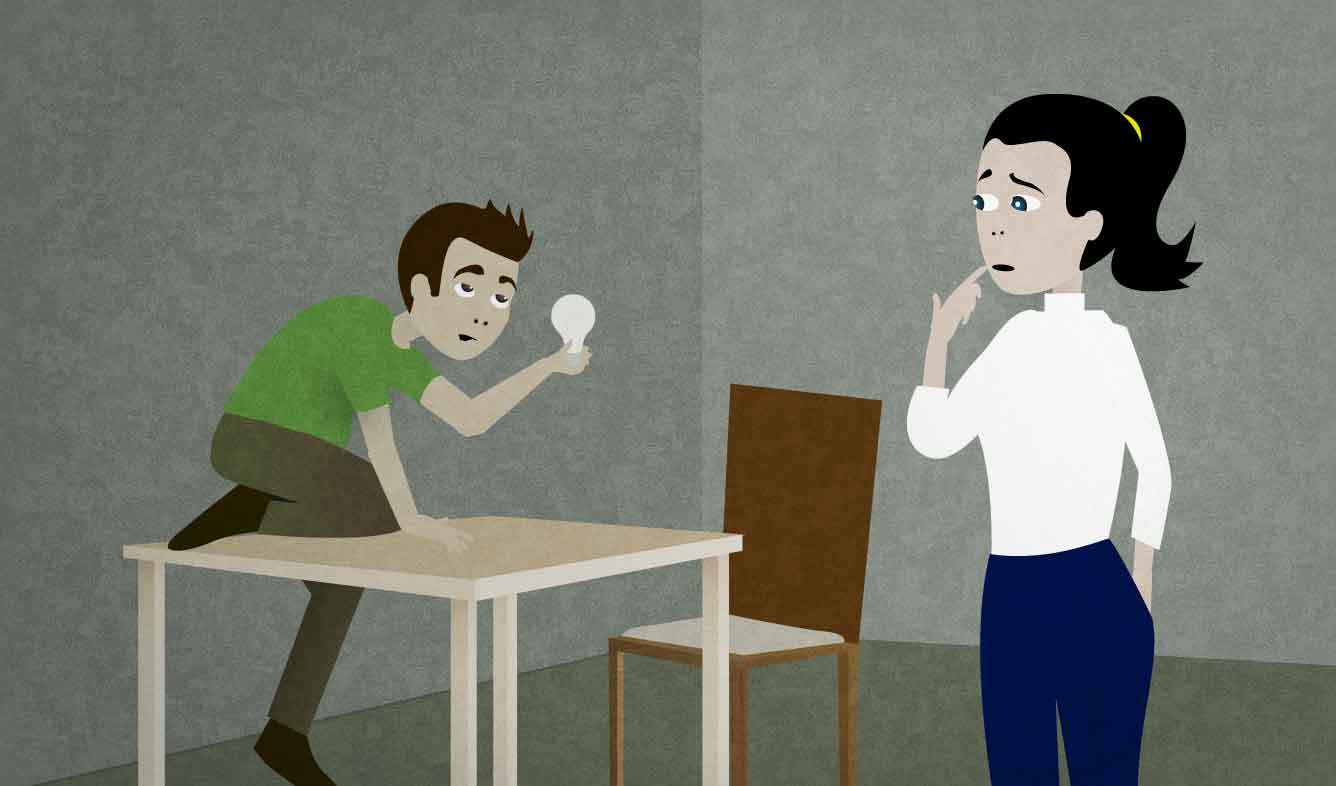“Are you sure that it’s sturdy enough to support your weight?”
A light bulb in the ceiling needs to be changed, but you don't have a ladder. Your boyfriend is going to stand on a table to reach it. The table doesn't seem very strong. You say this.
Are you sure that it’s sturdy enough to support your weight?
Want Video and Sound? Follow us on YouTube

are you sure (clause)
This phrase is used to check how committed someone is to an action or plan. For example, if you think someone's making a bad decision, you can ask:
In casual English, you can sometimes leave out "that":
Are you sure it’s sturdy enough to support your weight?
You can also use "Are you sure..." to check that someone is sure about a fact. For example, if the telephone isn't working, you might ask:
Are you sure the bill's been paid?
(something) is sturdy
"Sturdy" means "strong". Specifically, you use it to talk about things that won't fall down or fall over easily. So "sturdy" can describe:
- a table
- a chair
- a building
- a tree
- a person (either physically or emotionally)
support (someone's) weight
If a person can sit or stand on something without it breaking, you say that it can "support (the person's) weight":
I don't think that'll be able to support my weight.
A person can also support their own weight:
You have to at least be strong enough to support your weight for a few minutes.
